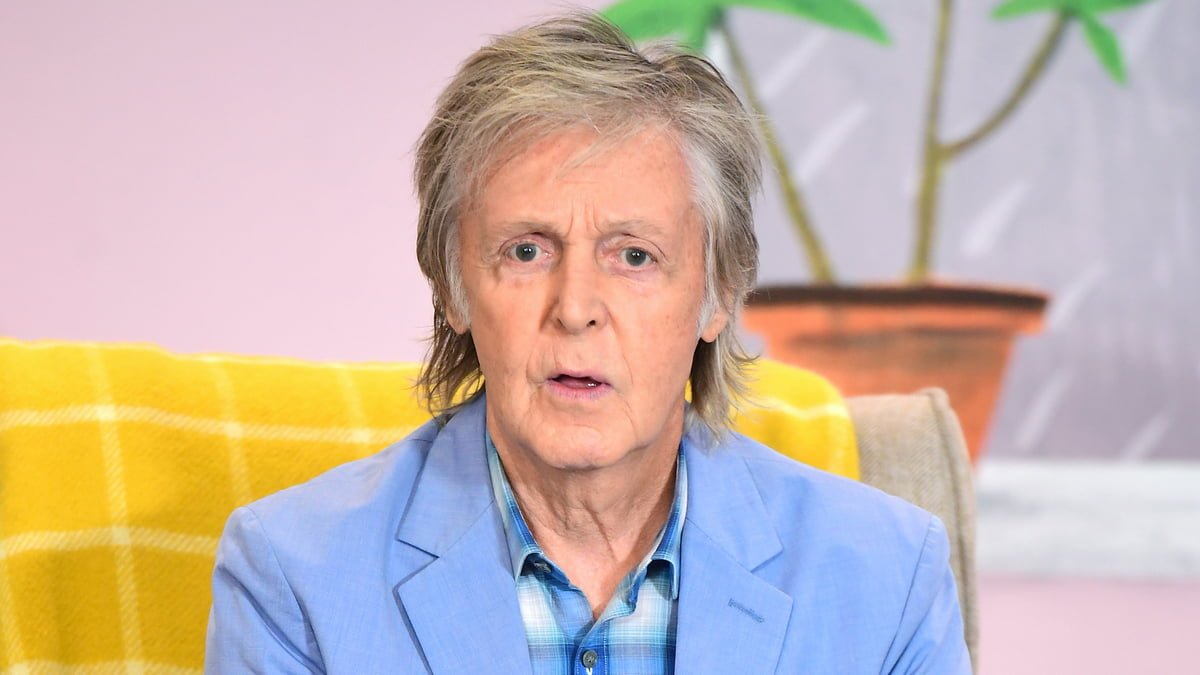Extraordinary storytellers create powerful and sometimes unexpected emotions. Storytellers come in different forms, from moviemakers to television producers, writers, and many radio personalities. I’m blessed to have worked with some of the best, including Howard Stern, Jim Ladd, Angelo Cataldi, and Danny Bonaduce, among others.
Today, I think I know the best storyteller of all, Sir Paul McCartney.
Forgive me for stating the obvious. Beyond McCartney’s talents as a musician, songwriter, author, and performer, he may be the best storyteller ever. I saw Paul in concert at one of America’s most beautiful ballparks, Oriole Stadium at Camden Yards in Baltimore.
Although I’ve seen The Rolling Stones, Elton John, Billy Joel, Chicago, and other leading artists up to a dozen times, I’ve never previously seen McCartney perform live. For that matter, I’ve never seen any of the former Beatles perform in concert.
I’m old enough to recall the Beatles breaking up, although I didn’t understand the cultural significance of their breakup at the time. Although I’ve had the opportunity, I’ve never seen any of them perform live as a solo act.
The songs McCartney has written, either with John Lennon or by himself, whether fictional, semi-autobiographical, or pure fantasy, are stories unto themselves. Each is a tale that transports every listener to a different place and stage of their life.
I knew about the incredible catalog of songs McCartney drew from his 60-plus-year career. Still, I didn’t expect McCartney to expertly tell the audience the stories he told from the stage.
Maybe Paul doesn’t give the aerobics performance that Mick Jagger does during a Stones concert, but McCartney connects with the audience through the stories he tells between the songs people come to hear. In this way, people feel they know him better, much like listeners believe they know their favorite radio personalities.
Among the stories, Paul tells include meeting Jimi Hendrix upon his arrival in London. Hendrix was able to perform Sgt. Pepper’s just two days after the release of the landmark album. As Paul tells it, because of the way Hendrix played guitar, his instrument went out of tune shortly after he started playing. Hendrix called out to Eric Clapton, who was trying to remain anonymous in the audience, to come up and tune his guitar (Clapton demurred).
McCartney also tells of the pre-Beatles group, the Quarrymen recording the demo for “In Spite of All the Danger” with pianist John Lowe ending up with the demo “for the next 20 years,” selling it back “at a handsome profit.”
McCartney also told the story of entering Abbey Road Studios and the Beatles’ first collaboration with George Martin. More specifically, he recalled how he ended up singing a key line in Love Me Do, and his voice cracking because of nerves, before promising that he wouldn’t be nervous and have his voice crack tonight.
These stories, and others, added to the songs he sang and added joy and happiness for me and the 51,000+ in attendance on a perfect evening in Baltimore.
As the concert came to a crescendo, a moment I was anticipating approached. I was aware that through the work of filmmaker Peter Jackson and the “Get Back” documentary I watched breathlessly last Thanksgiving, Paul would sing a duet of “I’ve Got a Feeling” with the isolated voice tracks of John Lennon.
Paul did his exemplary job setting up the moment, and the song started. A little more than two minutes into the song, Lennon flashed on the jumbotrons, and John’s voice rang out. The hairs on the back of my neck stood straight up. I had goosebumps on my arms. My mind played tricks on me. It felt, at least to me, as though he was one of the people on the stage. I thought I saw a ghost. Logic and my eyes conflicted.
My memory replayed returning from an evening class during my freshman year at Marquette University. I remembered turning on the TV to catch Monday Night Football and hearing Howard Cosell tell a stunned nation John Lennon was shot in front of his apartment at the Dakota apartment building and pronounced dead at the hospital. Yet my brain assured me that John Lennon was performing with Paul McCartney on stage at Camden Yards.
The story that McCartney created, with the help of Peter Jackson, was powerful beyond what I expected. Even though I knew what was coming, it knocked me back into my seat with tears streaming from my eyes.
Storytelling doesn’t always make us laugh or feel good. On this night, after all the joy, good feelings, and helping me relive moments of my youth, McCartney also reminded me of how much we lost far too soon and left me wondering what stories might have been told.
Great storytellers create powerful and sometimes unexpected emotions, even if they sometimes use technology to get the job done.
When radio is at its best, on-air talents can create incredible stories and emotions.
Radio has lost too many great storytellers who could tug on listeners’ hearts. It’s among the main reasons the medium has lost so much importance in recent years. The industry can’t be afraid to make people feel emotions. Whether it’s unadulterated joy or sadness that makes listeners sad or mad, those emotions are what on-air talent used to draw on. How many still do it today?
Radio has lost its way because we haven’t trained and rewarded storytelling. Management must be okay with performers who make listeners feel – whatever that might be.
Andy Bloom is president of Andy Bloom Communications. He specializes in media training and political communications. He has programmed legendary stations including WIP, WPHT and WYSP/Philadelphia, KLSX, Los Angeles and WCCO Minneapolis. He was Vice President Programming for Emmis International, Greater Media Inc. and Coleman Research. Andy also served as communications director for Rep. Michael R. Turner, R-Ohio. He can be reached by email at andy@andybloom.com or you can follow him on Twitter @AndyBloomCom.








